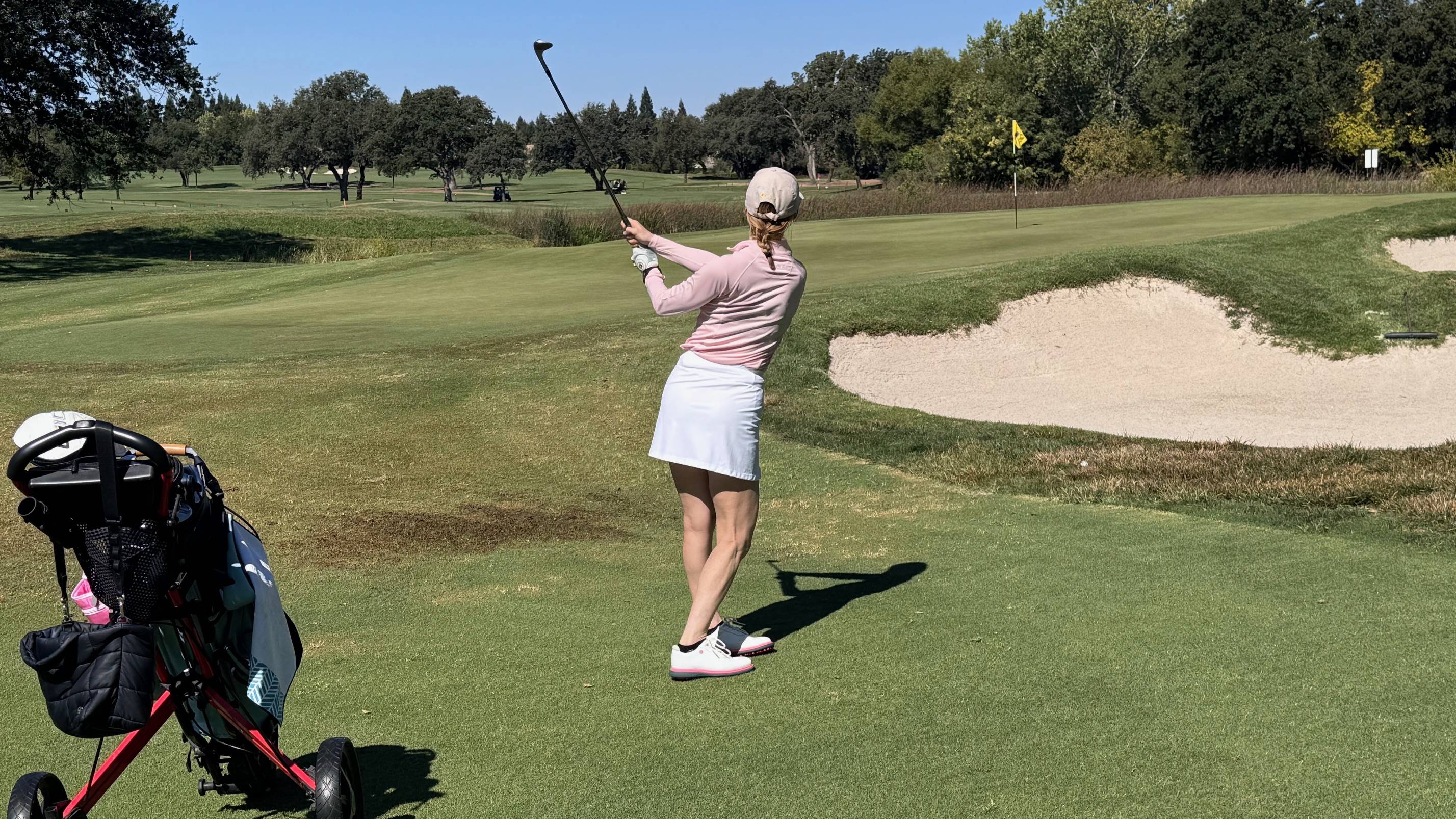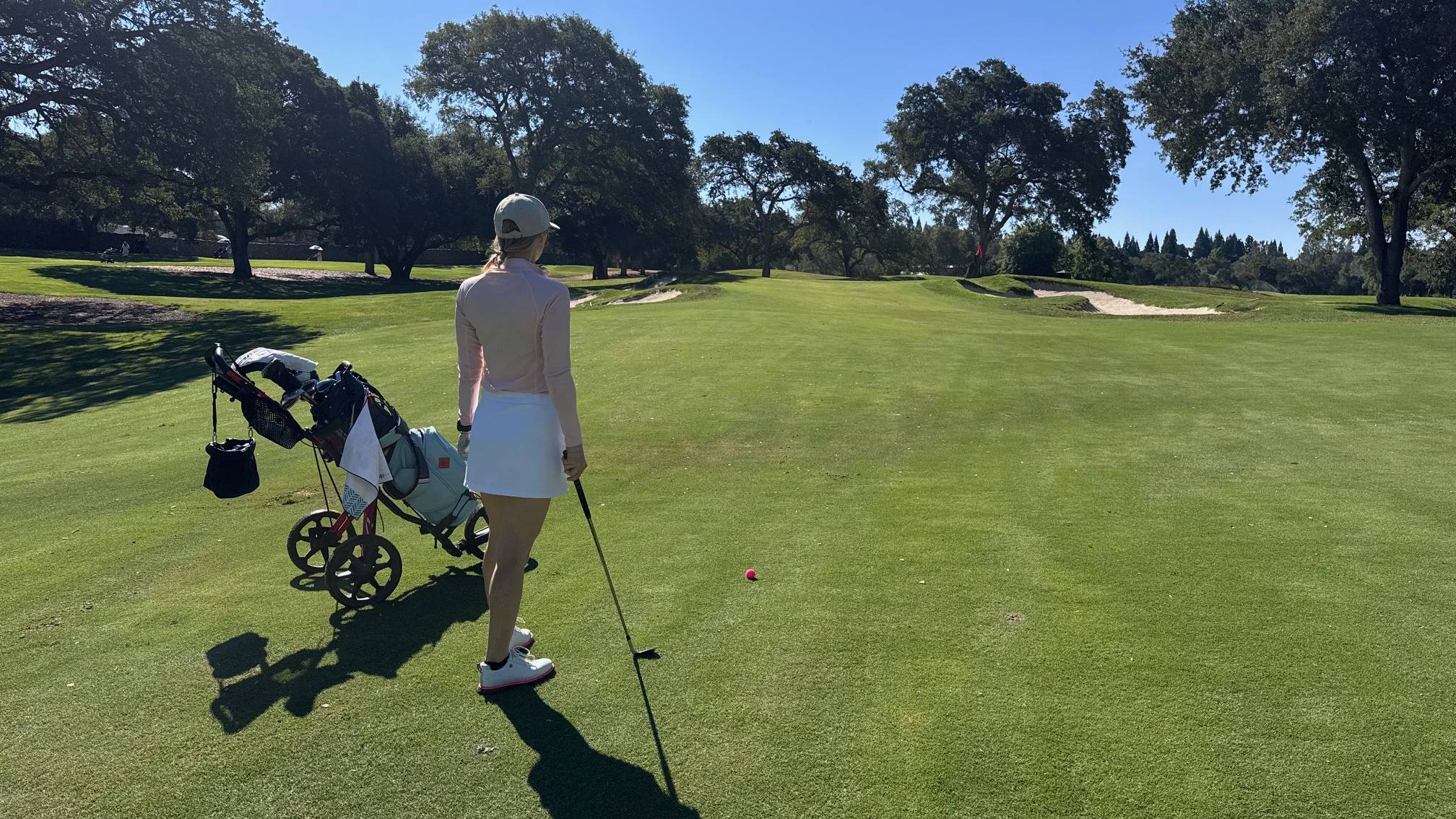'Are You Joining The LPGA?' - A Friend's Joke Helped Me Discover The Root Cause Of My Nerves
Here's 5 tips from a sports psychologist and a PGA professional to help you practice the mental side of the game


Subscribe to the Golf Monthly newsletter to stay up to date with all the latest tour news, equipment news, reviews, head-to-heads and buyer’s guides from our team of experienced experts.
You are now subscribed
Your newsletter sign-up was successful
Want to add more newsletters?

Delivered daily
Daily Newsletter
Sign up for all the latest tour news, gear reviews, head-to-heads and buyer’s guides plus features, tips from our top 50 coaches and rules advice from our expert team.

Once a week
Kick Point
Sign up to our free Kick Point newsletter, filled with the latest gear reviews and expert advice as well as the best deals we spot each week.

Once a week
Women's Golf Edit
Sign up to our free newsletter, filled with news, features, tips and best buys surrounding the world of women’s golf. If you’re a female golfer, you won’t want to miss out!
I get really nervous on the golf course. My first tee jitters start way before I stick that first tee into the ground and then follow me past the green. A little nervous energy can benefit you in sports, but when my hands are shaking before I need to make a short putt, particularly in a competition or when people are watching me play, that level of nerves is detrimental in golf. Old, bad habits re-emerge and more importantly, my round is way less enjoyable. And once I start to spiral, it’s hard for me to climb out.
As a non-golfing friend sarcastically asked me, “Why do you care so much? Are you planning on joining the LPGA?”
Um… well…no, obviously not (me, readjusting expectations). I’m joking, but it did make me think about the root cause of my nerves. Why am I so affected when a score comes into play, but can swing freely (and play much better) when I’m out having fun with friends or my husband? Is it performance anxiety? Fear of failure? Why am I putting so much pressure on myself?
Golf has two components, the technical part where you learn how to swing a golf club, and the mental aspect, where you remain calm, focused and resilient for the entirety of your round.
I didn’t know it was possible to practice the mental side of golf, but after speaking to a sports psychologist and a PGA professional who help golfers work through their nerves, it was clear that I wasn’t giving enough attention to improving my mental toughness. Here are 5 ways I plan to change that:
Focus Less On The Outcome
Being outcome-focused, meaning thinking of your final score or about who will win or lose, is generally a main cause of anxiety in golf, says Dr. Ethan Bregman, with West Coast Counseling and Sport Psychology in Northern California. And if you’re thinking about your score, then you aren’t focusing on the current hole and your current shot, he explains.
When someone is competitive, the score matters, and it’s OK to care about it, but the key is not letting those thoughts take away from my focus on each swing – a thought pattern that typically ends up affecting the outcome negatively, anyway.
Subscribe to the Golf Monthly newsletter to stay up to date with all the latest tour news, equipment news, reviews, head-to-heads and buyer’s guides from our team of experienced experts.

Customize A Pre-Shot Routine
It’s easy to take a few practice swings, but if they aren’t intentional swings, they most likely won’t benefit your golf shot, says PGA Professional Mike Richards. “When we get nervous, we tend to speed up,” he says.
So, a good pre-shot routine for me might be looking down the fairway, breathing deeply and taking a slow practice swing at a speed where I can maintain focus on my technique and the swing thoughts I want right before I hit my shot. Now, I’m focused on my routine and what’s in front of me, and not on my score or the people watching me.
Make My Pre-Shot Routine A Mandatory Part Of My Practice Time
If a pre-shot routine is going to help, it has to be intentional and repetitive and the only way to get there is adding into my practice time. I can’t throw it in during a match and expect it to help, explains Richards.
While on the range, allocate time to work on my pre-shot routine and then get in the habit of using it before each swing. Create that mind-body connection that when I look out into the fairway, take two deep breaths and a slow practice swing, it really will calm me down and put me in the moment.
Train My Brain To Focus On The Positive
Have you ever looked to the side of the fairway at a large body of water or at a bunker you have to chip over and thought, just don’t hit it in there? That’s actually a form of negative thinking, which amplifies feelings of nervousness, explains Richards.
A more positive thought would be: I’m going to hit the ball straight onto the fairway or I’m going to chip this onto the green. “All you see is that ball going down the fairway, not going into the water or the trees,” says Richards. “If you incorporate something like that into your routine, you will pull your shot off more often than not.”
A good place to initiate positive thinking is during my warm up, says Richards. Instead of starting on the range with big swings, start on the practice green with 2 ft putts. “See and hear the ball go into the hole over and over,” he says.

Find Something That Brings Me Back Into the Moment
This is similar to meditation, where you stop wandering thoughts by refocusing using your breath or a mantra. The same can work for golf, explains Bregman. He assigns clients exercises that help create a more present, centered mindset.
The exercises train your brain to notice when you’re getting distracted by outside factors. It teaches us how to observe our thoughts without necessarily reacting to them and check in with our physiology, he says.
Then, it’s easier to recognize when we’ve hit that sweet spot of nerves and excitement that helps us perform better, or our nervous levels are too high and need to be dialed back.
I know working on this mental skill set won’t eliminate my extreme nerves under pressure, but having the tools to help me control them is a huge step in the right direction. I’ll get there eventually, one deep breath and positive thought at a time.

Lauren Katims is a freelance writer and editor in Northern California. Over the past couple years, she’s become slightly obsessed with everything golf, including working on the mental aspect of her game as much as the technical skill set.
Lauren is lucky enough to have a group of inclusive and motivating women at her local golf club with whom she plays weekly. Follow along on TikTok @Lkgolfs.
You must confirm your public display name before commenting
Please logout and then login again, you will then be prompted to enter your display name.